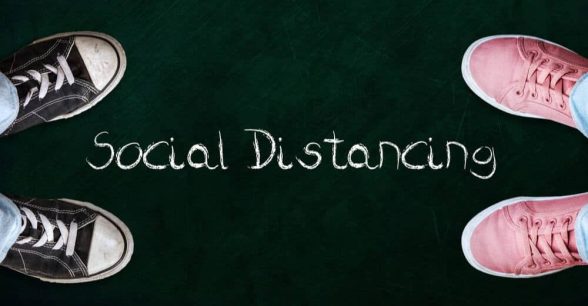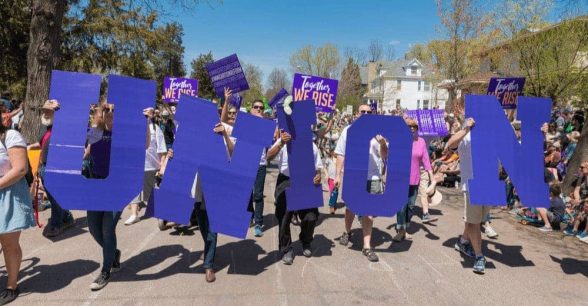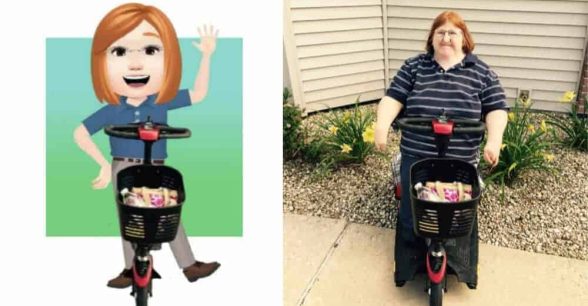Disabled People are Worth More Than the Hours We Can Work
It was my fourth day of teaching robotics to middle schoolers and during morning session, one of my students pointed to the sticker beneath my collarbone. He traced it to the knot of cords dangling beside my hip and then to the faint green light glowing from my pocket. “Is that an EKG monitor?” he asked.
“Yes,”
“I’ve only ever seen those in hospitals,” he said.
I felt a split second of embarrassment as I tried to explain the device belonged here.
For five weeks this past summer, I was a teaching assistant at my university’s summer enrichment program for academically talented youth. At the same time, I was laboring toward the tail end of a seven year-long process of diagnosis, using tension rods as walking sticks, nearly passing out on my way from the bed to the bathroom at night. My friend, who had worked a similar summer job in the past, cautioned me that the university often exploited the hours of summer to work employees non-stop.
When I looked at similar pre-college summer education programs around the United States, I found requirements such as “Must be able to traverse distances of at least one mile with or without accommodation…” and “Must be able to lift and/or maneuver at least 40 lbs.” The entry-level teaching jobs were riddled with tests of physical endurance.
This worried me. I am a second year college student at the University of Wisconsin-Madison with recently diagnosed Postural Orthostatic Tachycardia Syndrome, a chronic illness that affects the nerves controlling cardiac function, digestion, urination, and breathing. Like my peers, I work under the same conditions of our university’s student labor; I am limited to under 30 hours of work each week to prevent eligibility for employment benefit. For jobs that pay through stipends, I work eleven hour work-days regardless, and my first payment is withheld as a lump sum until far after weeks of labor have already been completed. These conditions, already, are unethical and exhausting. The added disability that causes blood to pool away from my brain from standing or sitting upright, makes even the “normal” demands of work – like staying conscious for eleven hours – dangerous.
This summer, in the absence of diagnosis, I believed I had to push my body past its physical limits. I attempted to go through the disability accommodation request process, but I fell short at the request for medical documentation. Full-time labor and part-time closures of hospital clinics on weekend had placed me in an impossible system where in order to get documentation and diagnosis, I would need more sick days, but in order to get more sick days I would need to supply documentation and diagnosis. I was stuck with my body and my words as the only verifiable proof of illness. In discussions with my boss and with an illness that is largely invisible, I learned quickly, through a system of reluctance, hesitation, and disappointed looks, that my own words, without legal mandate, were not enough to merit accommodation.
I want to be a teacher badly. My best teachers have taught me that work is not the same, or as valuable as passion or effort. At the same time, I also want to be fully conscious at the end of the day. I want the walk home not to feel like a marathon. I want my friends and family and teachers and employers to understand, deeply, that the accommodations that have the slightest of chances at making these wants a possibility are not “privilege” because neither is my right to remain conscious, my right to make it home, or my right to be alive.
This summer, I made a decision to value myself less than the system of labor that demanded I work until my body said enough was enough. By the end of day three, I had fallen far too deep into my last remaining energy reserves. By week two, I was spending the hours back from work sleeping on the floor of my room, too exhausted to move from the places I’d collapsed at night. On day thirty-five, at 1:00 AM in the morning, stuck in yet another invalidating system, trying to explain to an emergency room doctor that I was not an athlete; it was frightening for my heart rate to be so low.
I am more than my productivity and more than what those in power deem as valuable. My value is not determined by my abilities and my worth does not decrease when I am sick or dying.
The university needs to create a workplace where it treats its disabled employees as human, and a system of accommodation that relies on more than the inaccessibly of diagnosis. Accommodation does not mean exception, perk, or privilege: in more than one way, it means life.
About Rooted In Rights
Rooted in Rights exists to amplify the perspectives of the disability community. Blog posts and storyteller videos that we publish and content we re-share on social media do not necessarily reflect the opinions or values of Rooted in Rights nor indicate an endorsement of a program or service by Rooted in Rights. We respect and aim to reflect the diversity of opinions and experiences of the disability community. Rooted in Rights seeks to highlight discussions, not direct them. Learn more about Rooted In Rights



